Living in Spite of Shame
A mental health month conversation with Windsor Flynn and Alegra Kastens
Written by Made of Millions Team
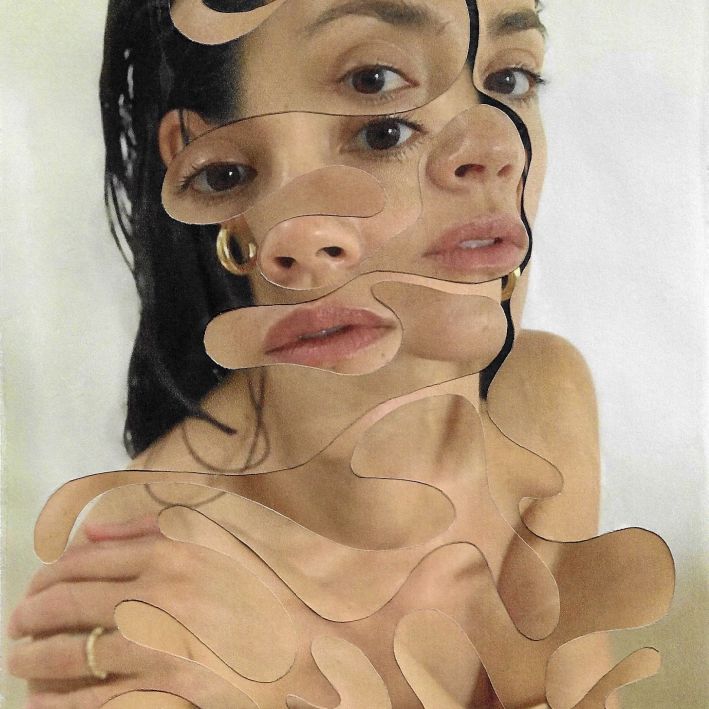
01 Windsor Flynn is a mother, advocate and Made of Millions board advisor living with OCD.
02 For our Shame Shouldn't Be a Symptom campaign, Windsor spoke with fellow advocate and clinician, Alegra Kastens, about the shame associated with Obsessive Compulsive Disorder.
03 All collage artwork from our campaign was created in collaboration with Ian Woods. Find him on Instagram at @ian___woods.
Looking back, Windsor Flynn has lived with anxiety, specifically Obsessive Compulsive Disorder, for much of her life. However, external and internal barriers kept her from recognizing the extent of her symptoms, and in turn, seeking help.
It wasn’t until the birth of her son, that the severity of her condition became clear. Even then, she had a long way to go before talking about her taboo intrusive thoughts was something she felt comfortable doing. What if I’m locked up? What if I’m judged? What if everyone arounds me thinks I’m a freak?
We don’t always realize the extent of our mental health shame. We get so used to carrying it around, it becomes a part of us. We don’t see the limitations it creates, or the lies it tells us about who we are and the value we bring the world.
Unlearning this shame has been a key component of Windsor’s recovery journey. For mental health awareness month, she sat down with fellow OCD advocate and licensed clinical therapist, Alegra Kastens, for a candid conversation about shame and OCD.
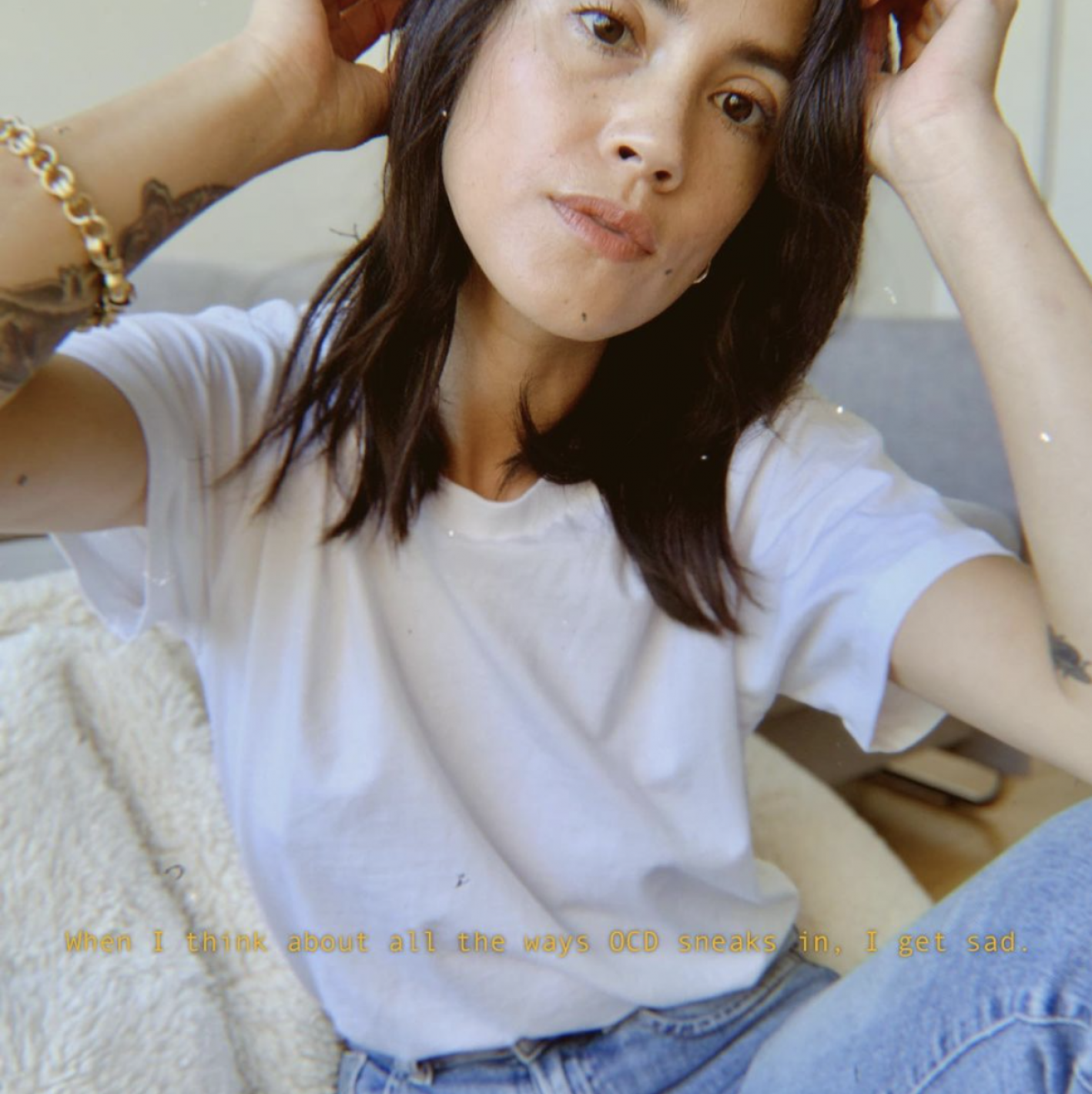
This is Windsor Flynn. She's an advocate who lives with obsessive compulsive disorder. Today we’re going to talk about her story and highlight the topic of shame. I know this is a broad question, but tell us about yourself — your journey with mental health, where you live, where you're at right now.
I'm Windsor Flynn. I identify most strongly with being a mom. It's what I take the most pride in. I have two children, three and seven. We live in San Francisco with no plans of leaving.
I'm from Hawaii originally and moved here in 2010 after what was probably my most dramatic mental health experience up until my postpartum OCD. I was having lots of anxiety and had just gotten out of a traumatic and stressful relationship. I came to San Francisco for a fresh start, but it turned out to be the start of when I was finally feeling like I had some kind of condition. I didn't find out that I had OCD until five years ago after the birth of my son. He's seven now and I’d say that I'm doing pretty well, if you want to compare it to the beginning of my journey. Which is when I was very not okay.
The rock bottom of like, the rock bottom?
Yeah! Exactly. If I compare myself to that, I’m doing great. But I always like to share, especially on my platform, that being in recovery from OCD is not linear. So I'm pretty good, but could be better.
Absolutely. When you talk about 2010, was that your “aha!” year in terms of realizing you were struggling?
That was when I recognized that I needed a change. I couldn't keep doing the same things that I was doing. 2010 was the peak of my, I wouldn't call it drug abuse, but alcohol consumption and recreational drug use. A lot of those were, in retrospect, coping mechanisms and me running from feelings that I was having.
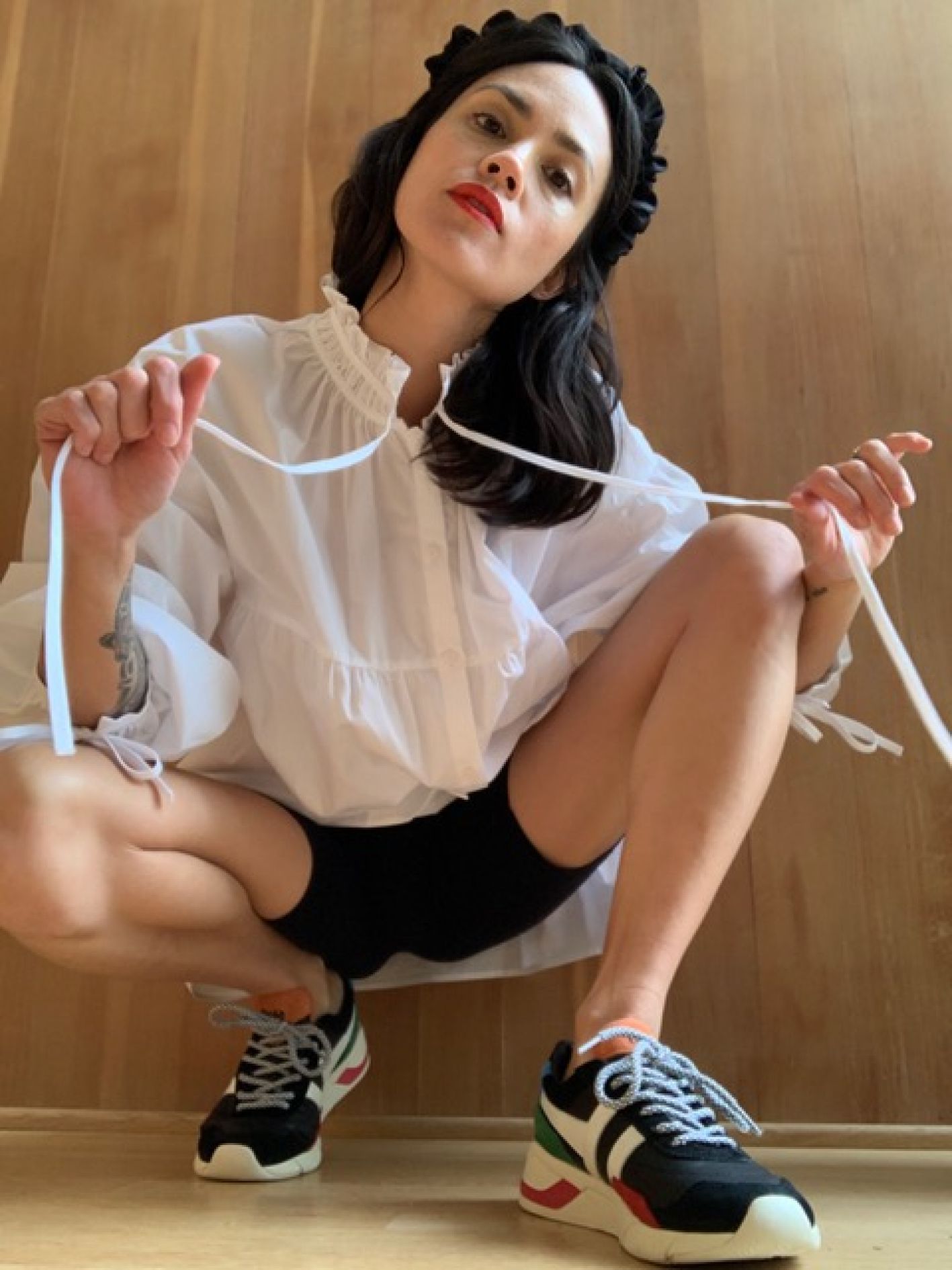
Was there a key moment with your OCD symptoms that made you think, “Okay this is a problem”?
I didn't even know what OCD was. Especially in 2010, I had a ton of taboo intrusive thoughts, but I just thought my brain was malfunctioning because I was partying too much or overthinking.
The OCD “aha!” moment wasn't until the birth of my son when I became worried that I was going to harm him. I was having violent, graphic images that would play in my mind all day. I couldn't ask anybody about them because I didn't want anybody to think that I was bad or capable of doing these things. Obviously, they were pretty shameful. I was embarrassed that I was struggling in that way.
I feel like so many people come to their OCD diagnosis by searching on Google, right? Me too. I did one search, saw a symptom checklist, and was like okay, this is definitely what I have.
Wow. Did that feel relieving or did you still doubt what you were dealing with?
I felt so relieved. But I also wasn't sure I had it because I hadn’t been diagnosed by a professional. However, in that moment, it was like a weight was lifted off of my chest. At least I knew I wasn't the only one. I wasn't some freak that somehow had babies without knowing I was a murderer.
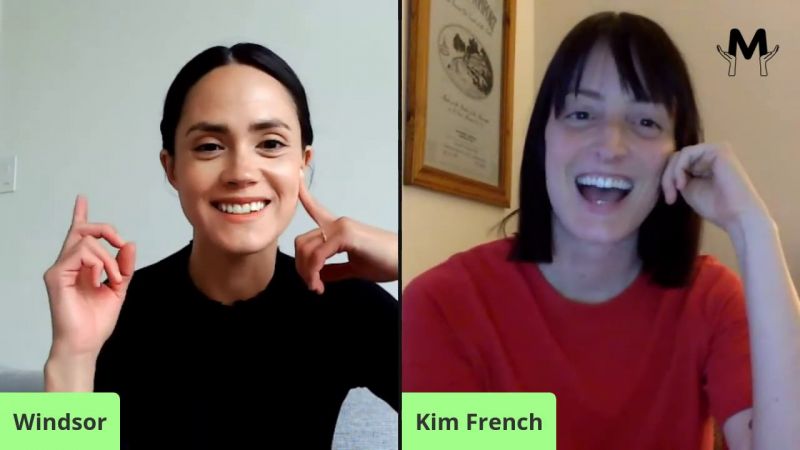
Maternal Minds: An Interview with Kim French
Windsor and Kim share their experiences with postpartum OCD.
For sure. It sounds like the shame that you felt from the more taboo, intrusive thoughts kept you from seeking help.
Yeah, if I would have just someone from the beginning, then I would have known.
Was there anything else besides shame that kept you from accessing treatment?
Not really. I had supportive parents who believed in psychology. It wasn't even the first time I had been in therapy. So I always knew that was an option. And luckily for us, we have the financial means to afford therapy. But I was just so ashamed.
Absolutely.
Also culturally, I have a big family. Everyone has kids, who have lots of cousins. In Hawaii, everyone has babies young. So I thought I couldn't tell anyone that I was having a hard time. Especially because people would come up to me and say, “You're such a good mom. You're a natural. You make it look so easy.”
Like, if only they knew?
Yeah. I wanted people to think that I was doing great. I lived in San Francisco, the best city in the world. I had a house, a husband with a great job, a baby. It all sounded so great. I just wanted it to seem like I was living this perfect life.
Totally. I think what you’re speaking to is not only relevant to OCD, but also the pressure a lot of moms face to love pregnancy and love having a newborn when the reality is, a lot of moms don't like it. And that's okay. It just doesn't feel ok to say. Looking back, do you think shame caused you to miss out on things?
Shame really has been a guiding emotion. I didn't finish college because I didn't want to not be able to do it. Like writing a thesis statement, I felt like that was going to be so hard, and if I couldn't do it, it would be embarrassing.
I don't even realize when shame is taking control at times. It comes into my life in the form of perfectionism and having to be really, really good at something. Like with body image, I struggled a lot when I was younger to look perfect.
Shame has kept me from being relaxed and living in the moment because there was a concern for how I would be judged, how my family would see me, and if I was living up to expectations.
What do you think it would mean about you if you weren’t perfect? Would it be shameful to be human instead?
It wasn’t about being perfect as much as it was about being emotionally strong. Most of the family I grew up with didn’t openly cry or express big emotions past childhood. My mom never cried, and neither did any of my aunties. It just wasn’t something I witnessed. I grew up thinking emotional vulnerability was a sign of weakness and I internalized that for a long time.
Is that one of the lies that shame told you? That feeling emotions or struggling made you weaker or lesser than?
For sure. Luckily, I don't subscribe to that anymore.
There are so many factors that influence shame and why we feel it. For you it sounds like culture and environment were big ones.
It's interesting to see how things play out because I'm sure the people around me wouldn't have wanted that to be the case. No one ever wanted to make me feel ashamed. But when you grow up learning things a certain way, you accidentally teach those things.
Exactly. We unknowingly pass things down. If you had to define shame, what does that word mean to you?
Shame makes me feel like parts of myself are not good enough and are not meant to be shown to the world. But that's not true! We are all multifaceted. All our parts have to be nourished and talked about, otherwise the bad ones get worse.
The longer you hide from things that cause shame, it just turns them into this big scary secret. But as soon as you tell someone, they're like, “Oh yeah, me too.” It’s such a waste of time!
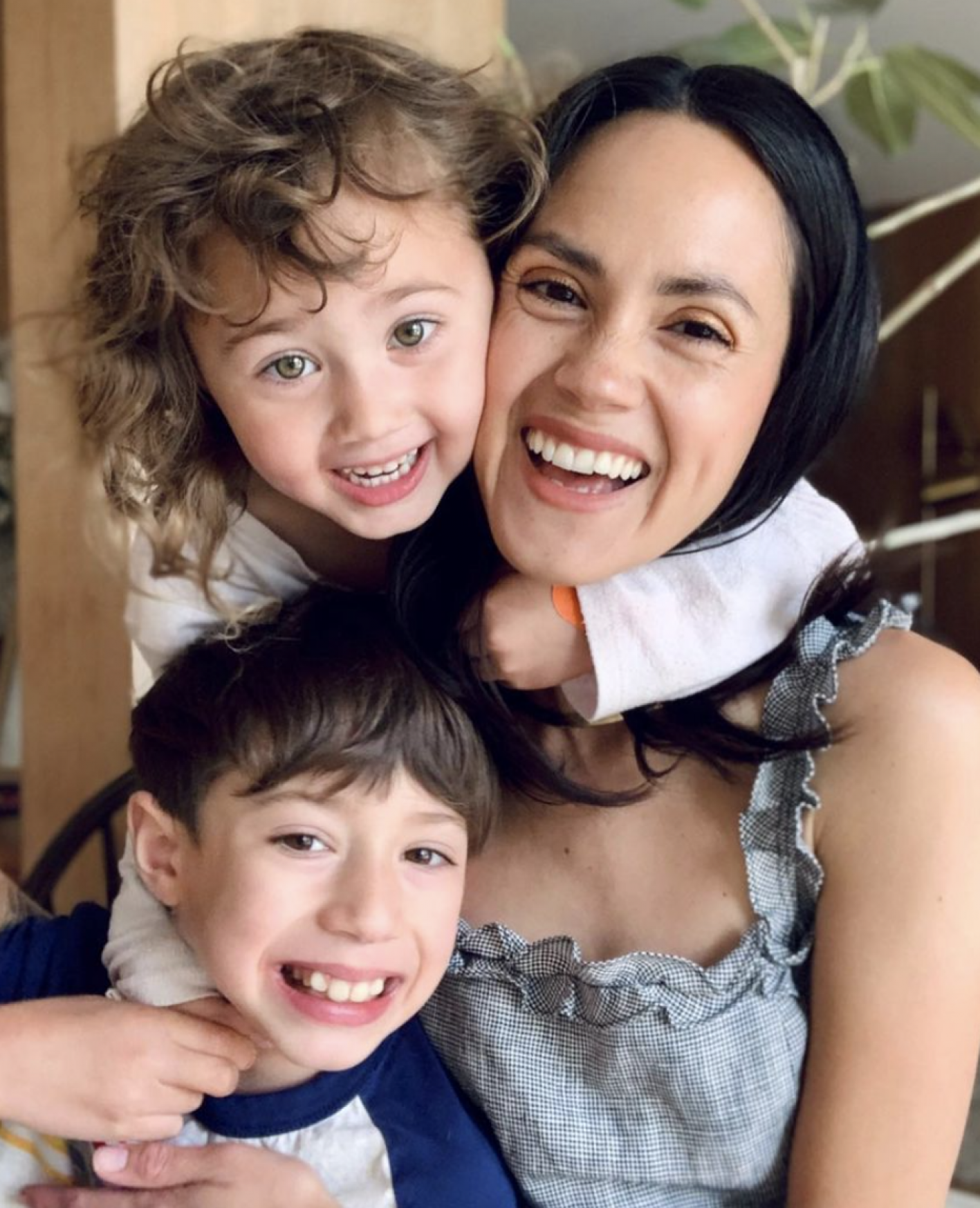
Brene Brown says shame grows in secrecy and I really believe that to be the case. The way I think of it is: shame says we are bad, guilt says I did something bad. It’s this feeling that somehow we are wrong or unlovable, and there's a lot of that when living with OCD. What was it like when you first opened up to your therapist about it?
I laid it all out on the table; it was word vomit. I had no apprehensions because I was at a point where it was like, “Ok, listen. I think all these things night and day. I don't want to do any of it, but if you think I should be put away, then just do it. Do whatever you need to do to keep everybody safe. I don't even care.”
At first, I didn't want to go to a mental hospital. I felt so much shame around that. I didn't want people to label me as crazy, but I was so desperate when I finally sought treatment, I didn't care anymore. I was like, ok. Safety over shame.
That really goes to show how much you value your kids and how ego dystonic OCD is. The thoughts are the last thing you would want to do.
Luckily, she said I had OCD. So that was a point for her, but that's as far as the points go. She didn't know how to treat OCD. She was supposedly a specialist, but it turns out she wasn’t. She wanted to dive into my past traumas and how that could have affected me and it wasn't helpful. I didn't have any tools. Basically, she gave me reassurance once a week.
Oh no!
Yup. To the point where I felt like I was cured because she told me enough times that I wasn't going to kill anyone, and that's all I wanted to know. She even suggested that I stop doing all the things that make me anxious. I felt great for six months because I didn't have to do anything that I didn't like.
You were avoiding compulsively, I'm sure.
So much avoidance! Before, my husband would push me to do things. But then I was like, “My therapist told me that it's just hormones. When it passes and I feel better then I can do that thing.” So we catered to my OCD for six months.
I felt really good, then I got pregnant again. I used everything that I learned from her, which was avoidance and telling myself “My thoughts are just thoughts.” Somehow, it got worse. So when I finally had my second baby, it hit the fan. I had no coping skills.
That must have been difficult because you were seeing a postpartum specialist and probably thought that would help.
Yeah, but I had a feeling that she was wasting my time. She was very expensive. I spent so much money yet I didn't have any tools. I knew that what she was giving me wasn't what I needed, even though it made me feel better in the moment.
So I left and fervently searched Google for another therapist. Luckily, the first lady I called ended up being the best therapist ever. I still see her.
Related Conditions
I love that. It sounds like with the first therapist you saw, you got reassured, but obviously that's not enough because it doesn't work. OCD cannot connect to logic in that way. Going back to shame, self worth, impostor syndrome, inadequacy… do you still battle with these things?
All the time. But I can say one of the things that I've learned in ERP therapy, has been the ability to tolerate different types of feelings. At first, I was just using exposure therapy for my intrusive thoughts that were directly related to my obsessions. But as OCD took a back seat in my life, I kept on with my therapist for things like marriage, moving, impostor syndrome. I found it to be really useful in managing those uncomfortable feelings.
I'm not going to say that I don't struggle because I do every day. I still feel lots of shame over not going to college or not having a piece of paper that says, yes, you are good at this. But now, I don't punish myself for having those feelings. I just let those feelings be there and keep going towards my values and goals. I trust that my positive action is eventually going to get me there.
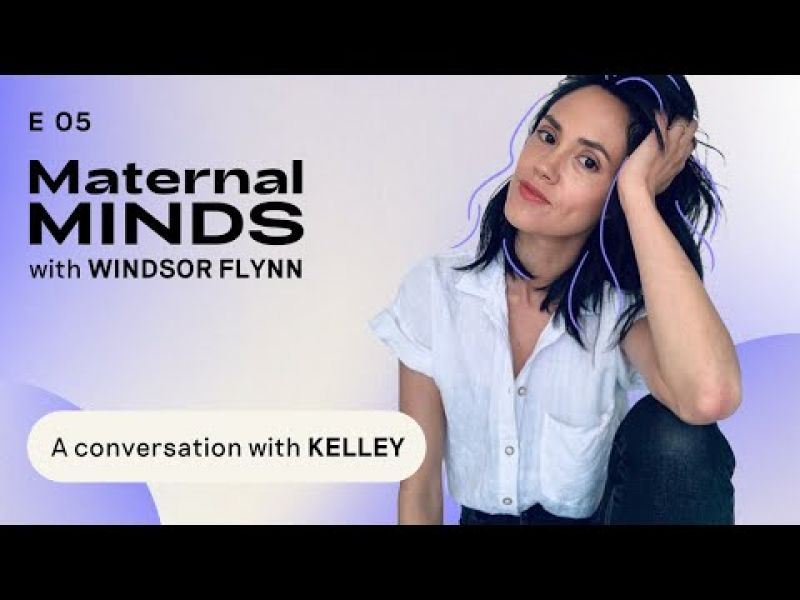
Therapy Meets Instagram, OCD & More | Maternal Minds
Kelley Franke joins host Windsor to talk about her experiences with OCD & how it affects her ability to empathize with clients.
You use the tools of nonengagement that we would with obsessions for feelings of low self-worth or inadequacy.
Yeah, and even though I'm a lifelong therapy person, I still succumb to those thoughts and feelings, I just have more practice saying no. I also remind myself, what happens when I do engage? It's a downward spiral. Being a stay at home mom is great and is cool for the kids, but at the same time, it's a thankless job and a lot of people think that I do nothing.
You’re just keeping two kids alive, not a big deal.
Yeah! Sometimes I even hear women in the workplace be like, “Oh, you're a stay at home mom? I couldn't do that. I need to stimulate my brain.” I'm like, ok. So you think I'm a loser and that I can't do anything else? I still feel that sometimes. But what can I do?
It sounds like you haven't fully internalized that and you've worked on ridding yourself of the narrative that being a stay at home mom is a terrible thing.
Probably because I have my therapist to remind me and be like, “You keep kids alive every single day. Every time I talk to you, you're doing a million things.” So it's cool because I have a therapist who specializes in OCD, but she also has experience with being a therapist in general.
That’s so important! Not all reassurance is bad when it comes to stuff other than OCD. What would you say to someone who has internalized shame? How can they work through that?
Feel all those feelings. Feel what's shameful about it and see how much of it you agree with. What parts of that do you believe, and why could it be causing you so much pain? Then see what parts of those things you can change and how much of that is a change in thinking.
There's different ways to approach shame. For example, I had a lot of shame around not doing something besides taking care of my kids. I felt ashamed that I wasn't actively pursuing other careers or interests. A lot of what kept me from that was my own self talk, so part of getting rid of my shame was allowing myself to move forward. I try to recognize if it's my own judgment or if it’s someone else's judgment and treat them both the same, as bullshit.
And what would you say more specifically to someone with OCD who is dealing with shame?
OCD is a mental health condition that nobody asks for. Nobody does it on purpose. There's no way to take responsibility for your subconscious mind — it just comes up with thoughts and it's not a part of you. Feeling shame for something that is not actually you is misplaced.
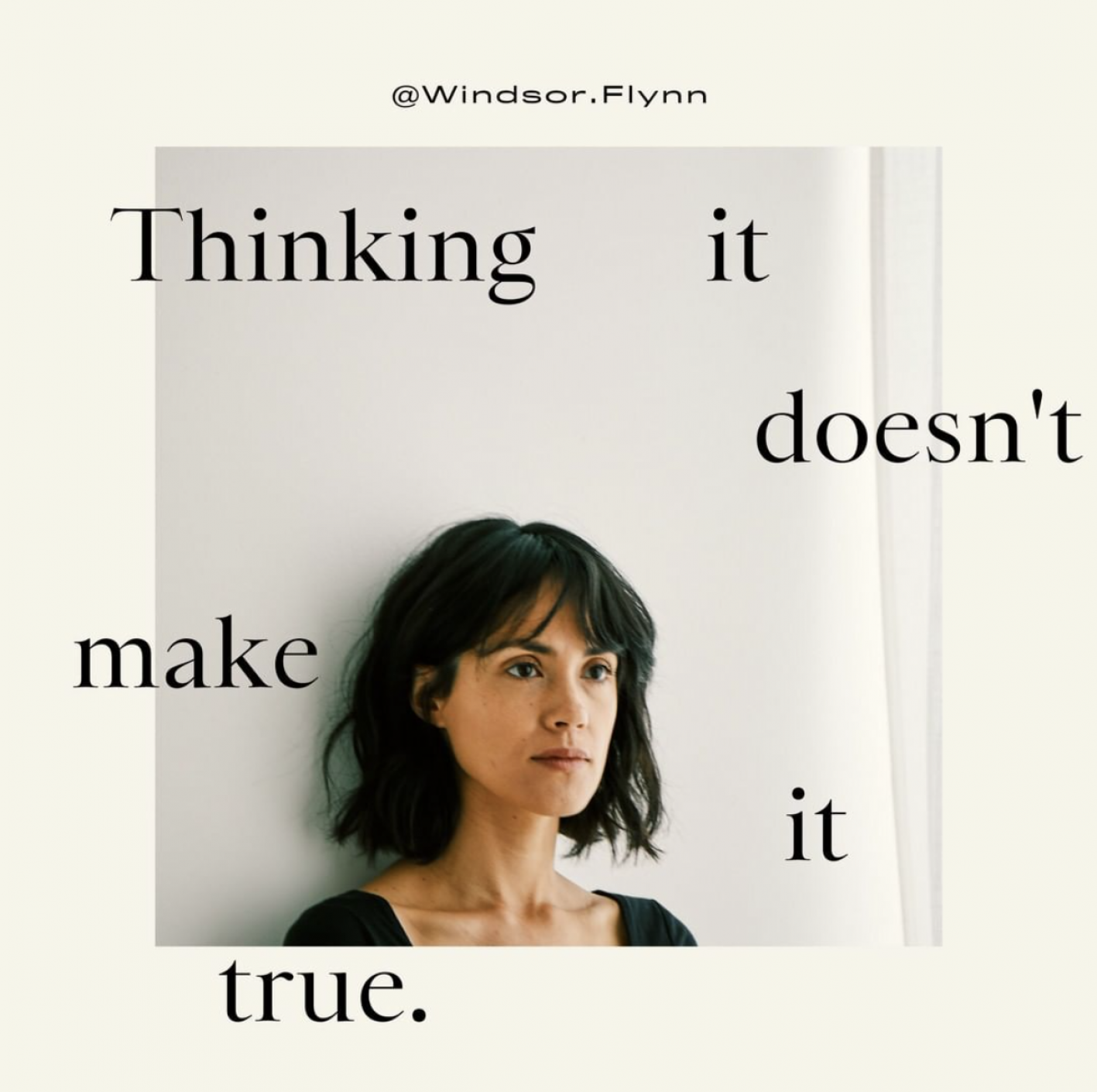
Absolutely. That's why I love what you're doing so much, especially with postpartum obsessions. A lot of moms are really afraid to admit that they're having those thoughts.
Have you read the news? The way they talk about moms, no one is like, “Oh, this mom is so good. She took her kids to school every single day.” The only time they write about moms is when they kill their kids, drown them in the bath, or go into psychosis. And psychosis is a real thing, but it's rare. It doesn't always mean that you're a murderer or a killer. I just feel like people need to talk about it way more.
That's why advocacy is so important. Is there anything else that you want to tell others about your story?
If you are struggling with OCD, it comes with shame because the majority of the thoughts are taboo and against your values. It's best to seek out therapy and help from a professional who specializes in OCD. That way you can learn how to process the thoughts, learn what thoughts are and what they aren't, and learn what they mean.
It's important to have an intellectual understanding of OCD because then it separates the OCD from the self, which I think is what causes a lot of shame. When you don't know that OCD is not you, then you're going to feel a lot of shame around the voice. The first step in getting better is accepting that you have a brain that may not work like everybody else's, but it still works. It doesn't take away from your value or your self-worth, and it doesn't make you a bad person, just highly creative and less tolerant of uncertainty.
Logically people know that but it's so hard when you feel shameful. There's this battle between what you know vs what you're feeling.
You do a lot of talk about shame, too. What would your advice be to people who suffer from shame?
I look back on my journey and I had so much shame. I don't feel a ton of shame now because I’ve talked about it so much, and I think talking about it is the most powerful antidote. Also, recognizing that this is something I'm dealing with as opposed to who I am.
But it's hard for a lot of my clients, even if they logically know they have nothing to be ashamed of. Sometimes we just have to feel those feelings and let them exist. Feel the shame, but live a life that you want to live anyway.
Exactly. That's the only way to move forward because it's so easy to get stuck in your feelings.
Yeah! Just like with intrusive thoughts, we're not always in control of our feelings. We can't just say to someone, stop feeling shame. Rather, if you're feeling shame, don't let it dictate how you're going to live your life.
I love that!
Keep up with Windsor on Instagram at @windsor.flynn, and with Alegra at @obsessivelyeverafter. All collage artwork from our Shame Shouldn't Be a Symptom campaign was created by Ian Woods.
Support our work
We’re on a mission to change how the world perceives mental health.



















